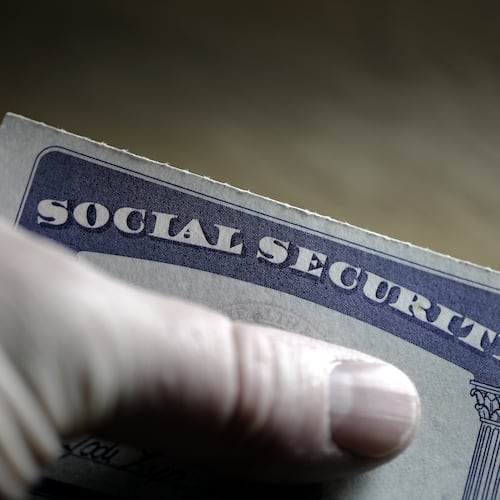Only hours after declaring an end to deliberations with congressional Democrats over another coronavirus stimulus package, President Donald Trump appeared to back away a bit from his position.
On Tuesday afternoon, Trump said he was halting negotiations with congressional Democrats over a new coronavirus stimulus bill “until after I win” the Nov. 3 election.
Hours later, Trump took to Twitter again and called on Congress to send him a “Stand Alone Bill for Stimulus Checks ($1,200)” — a reference to a pre-election batch of direct payments to most Americans that had been a central piece of negotiations between House Speaker Nancy Pelosi and the White House. Pelosi has generally rejected taking a piecemeal approach to COVID relief.
Earlier Tuesday, Trump also said he is focusing “full time” on the approval of Judge Amy Coney Barrett to the U.S. Supreme Court instead of coronavirus stimulus negotiations.
Trump made the Twitter announcements less than 24 hours after returning to the White House after three days at Walter Reed Medical Center for coronavirus treatment.
On Tuesday, Federal Reserve Chair Jerome Powell warned a tentative recovery from the pandemic recession could falter unless the federal government supplies additional economic support.
Powell said government support — including expanded unemployment insurance payments, direct payments to most U.S. households and financial support for small businesses — has so far prevented a recessionary “downward spiral” in which job losses would reduce spending, forcing businesses to cut even more jobs.
But the U.S. economy still faces threats, and without further aid, those downward trends could still derail the recovery, the chairman said.
“The expansion is still far from complete," Powell told the National Association for Business Economics on Tuesday. "Too little support would lead to a weak recovery, creating unnecessary hardship for households and businesses. Over time, household insolvencies and business bankruptcies would rise, harming the productive capacity of the economy, and holding back wage growth.”
Powell noted the economic recovery has slowed in recent months compared with its rapid improvement in May and June. Incomes fell in August. And job growth weakened in September, slowing to 661,000, less than half the gains of 1.5 million in August and 1.8 million in July. The economy has recovered only slightly more than half the 22 million jobs that were lost in March and April.
“A prolonged slowing in the pace of improvement over time could trigger typical recessionary dynamics, as weakness feeds on weakness,” he said.
During a question-and-answer session with economists, Powell noted the pandemic recession has disproportionately harmed in-person service industries, especially restaurants, bars, hotels, travel companies, movie theaters and other entertainment venues. The heavy damage to those industries has left millions of people unemployed, likely for an extended period, until they are either finally recalled to their previous jobs or switch to new careers.
“The right thing to do and the smart thing to do in the long run is to support those people as they return to their old jobs or find new jobs,” the chairman said.
In recent months, in speeches and in testimony to Congress, Powell has repeatedly urged lawmakers to enact an additional economic aid package. Fed chairs typically avoid inserting themselves into policy debates, but Powell has stressed the Fed can only lend money to help spur growth.
Though negotiations between House Speaker Nancy Pelosi and Treasury Secretary Steven Mnuchin on a new spending package are ongoing, prospects for a deal remain dim.
A $2 trillion financial rescue package that Congress approved in March, as well as previous aid measures, were “truly extraordinary,” Powell said, enabling U.S. households to pay bills and maintain their spending even as unemployment soared to 14.7% in April.
The Associated Press contributed to this report.
About the Author
The Latest
Featured



